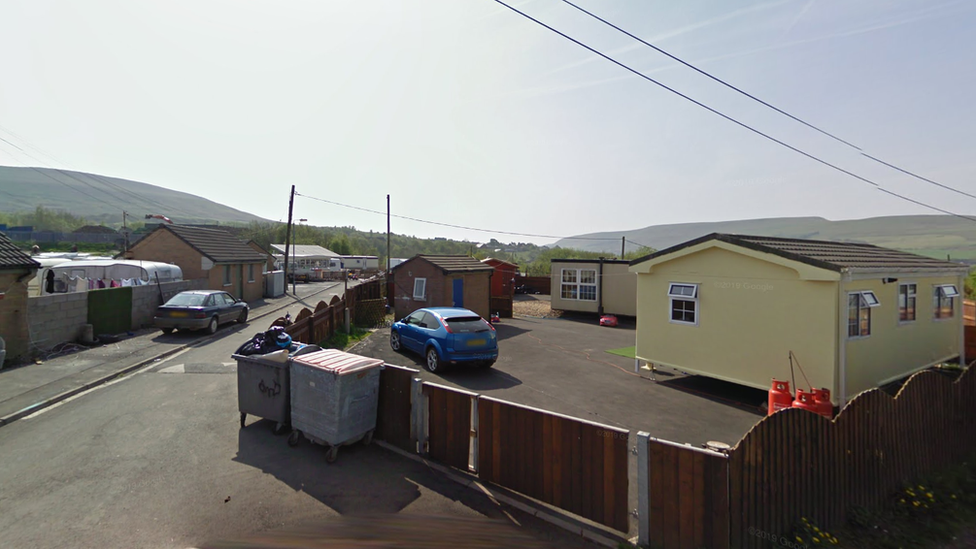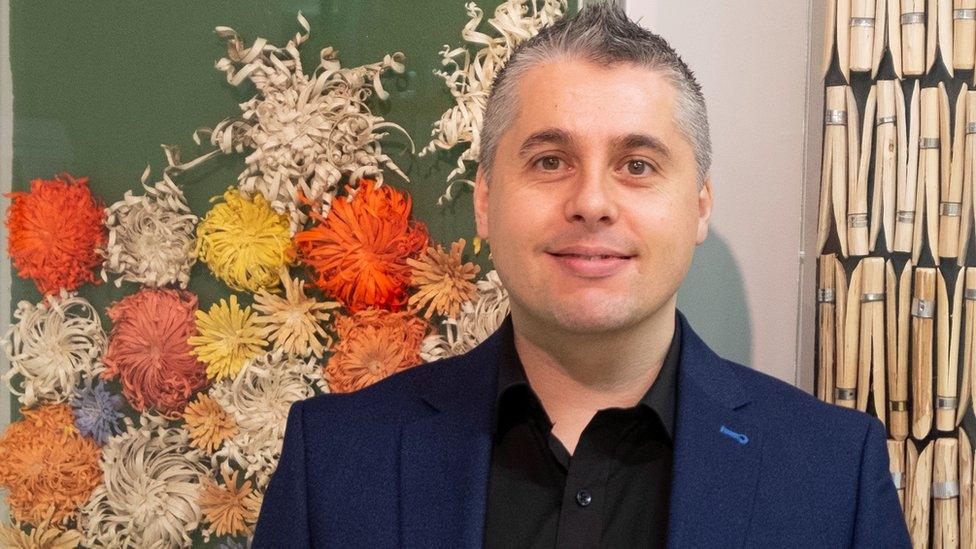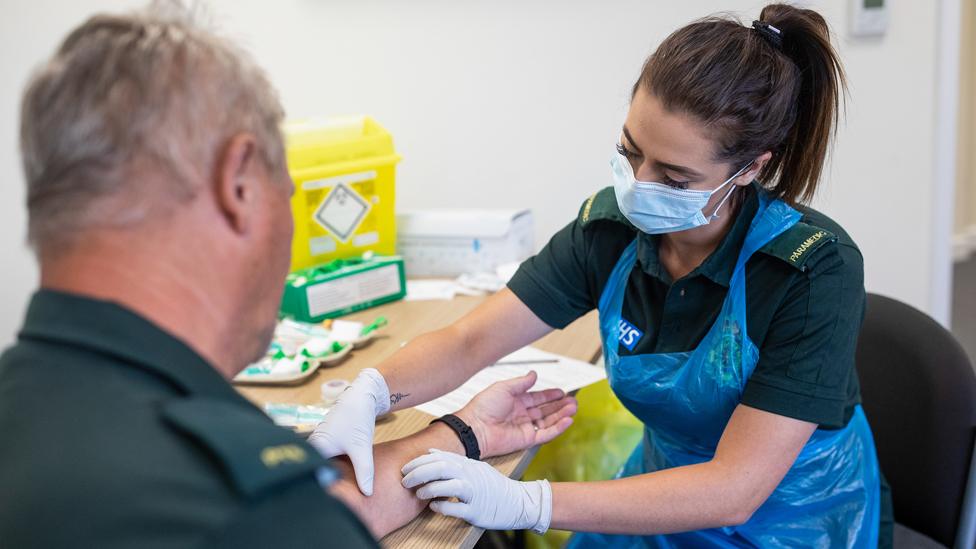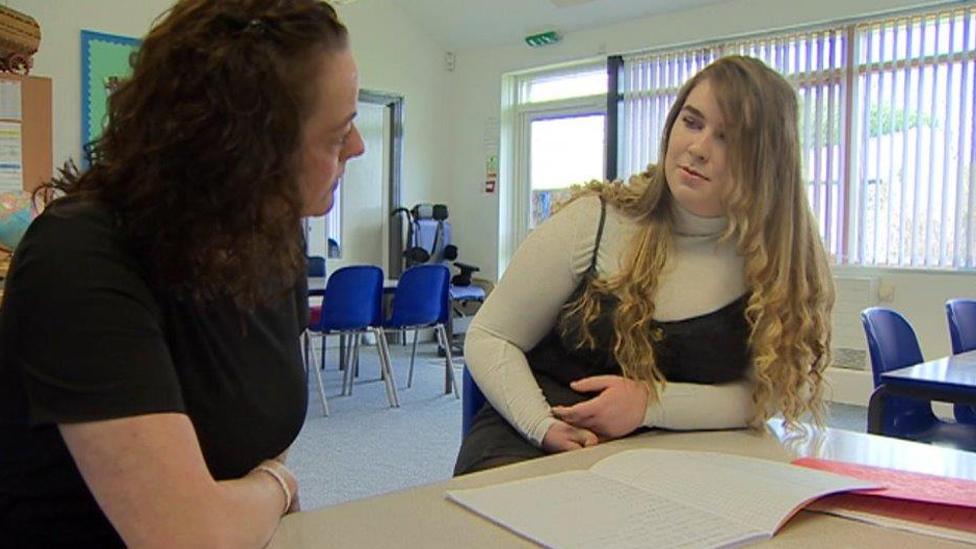Coronavirus: Gypsy, Roma and Travellers 'disproportionately' affected
- Published

The warning comes ahead of fears of a Covid-19 surge as the months grow colder
Councils must "quickly develop" ways to support the Gypsy, Roma and Traveller community before a second Covid-19 surge, a charity has warned.
The Cardiff-based Romani Cultural and Arts Company (RCAC) says they have been "disproportionately" affected.
A second wave would make the community even more isolated and marginalised, the charity said.
The body representing councils said they worked "closely with Gypsy, Roma and Traveller communities".
In a letter to First Minister Mark Drakeford in April, the company's director Isaac Blake said the pandemic "can only exacerbate the obstacles that Romani and Traveller communities face in accessing hospitals and doctors' surgeries".
He added that because general levels of health within the community were "quite low", Gypsies, Roma and Travellers were "more vulnerable" to the virus.
Mr Blake also explained that "most Roma live in crowded, multiple-occupancy dwellings where space is at a minimum and social distancing measures are impossible to maintain".

Mr Blake is calling on authorities "to quickly develop tangible guidance for essential public services on how to work with the GRT community"
There are concerns too that children's education could "suffer catastrophically" due to the lack of access to online learning material, and that the community is "completely vulnerable to the collapse of the self-employed economy".
In addition, Mr Blake said in his letter that those living on travellers' sites relied on tokens bought from site wardens to supply utilities but "as these council staff are no longer on site, this leaves residents with families or elderly Travellers without heating, lighting and water".
Ahead of an anticipated second surge of the virus in the coming months, Mr Blake told BBC Wales: "The GRT community was isolated and somewhat abandoned before Covid-19 hit.
"The first wave of Covid-19 caused the site-dwelling community in particular to retract even further from the mainstream, and disabled to a greater degree access to essential services and information.
"A second wave will only serve to make this isolation and marginalisation even worse again."
Mr Blake is calling on authorities "to quickly develop tangible guidance for essential public services on how to work with the GRT community", including making public health information more accessible.
"Local authorities also need to put clear protocols and systems in place to ensure that there is no breakdown in the site-dwelling community being able to access tokens for water and electricity," he adds.
What do the councils say?
The Welsh Local Government Association (WLGA) said councils were "committed to their equalities duties and work closely with Gypsy, Roma and Traveller communities".
A spokesperson said: "The WLGA supported the Welsh Government's BAME Covid-191 Advisory Group and recognises the impact the pandemic has had on inequalities.
"We will work with the Welsh Government in addressing any recommendations from this report and the Senedd Committee's recent report regarding improving communications and guidance for public authorities.
"Local authorities are continually reviewing their emergency planning arrangements in preparedness for any future local outbreaks and the WLGA will refer the specific concerns raised about Gypsy, Roma and Traveller site access to water and electricity tokens to local authorities to be considered as part of this process."
The Welsh Government said it had given guidance to councils to help protect the community's health and well-being.
It said in a statement that it was "continuing to work with Public Health Wales, local authorities and the third sector to make sure support is in place for Gypsy, Roma and Travellers throughout the pandemic and beyond".
- Published5 July 2023

- Published24 June 2020

- Published3 April 2019

- Published20 November 2019
